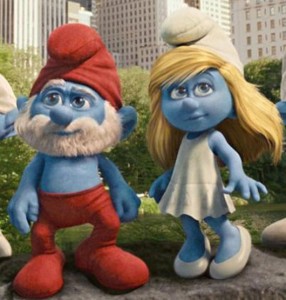Saturday, September 17, 2011
There in the garden, a little fox
Steals out at night, when no one is about,
And under the shadow of the autumn vines
He eats in secret the dewy bunch.
Love is no fox,
Nor you a bunch of grapes.
But unbeknown my heart stole out
And plucked you in secret, when no one was about.
—Toson Shimazaki, Crafty Fox
Friday, September 16, 2011
Halley’s comet appeared in 1910
(And I was born in the following year):
Its period being seventy-six years and seven days,
It is due to reappear in 1986
So I read, and my heart sunk.
It is unlikely that I shall ever see that star
And probably that is the case with human encounters.
An understanding mind one meets as seldom,
And an undistracted love one wins as rarely.
I know that my true friend will appear after my death,
And my sweetheart died before I was born.
—Katsumi Tanaka, Chance Encounter
I found this poem through Harlan Ellison. He quotes the last two lines in his story, Grail.
Wednesday, August 3, 2011

Wenn du ein Beziehungsprobleme hast, dann tust du mir echt Leid, Junge.
Ich habe neunundneunzig Probleme, aber die Schlumpf ist keins davon.
“Every human being has, I believe, at times given room to the idea of creating a world himself. The Pope, in a flattering way, encouraged these thoughts in me when I was a young man. I reflected then that I might, had I been given omnipotence and a free hand, have made a fine world. I might have bethought me of the trees and rivers, of the different keys in music, of friendship, and innocence; but upon my word and honor, I should not have dared to arrange these matters of love and marriage as they are, and my world should have lost sadly thereby. What an overwhelming lesson to all artists! Be not afraid of absurdity; do not shrink from the fantastic. Within a dilemma, choose the most unheard-of, the most dangerous, solution. Be brave, be brave!”
—Isak Dinesen, The Deluge at Norderney
We have the picture of you in mind,
when you were young, posturing
(for a photographer) in scarves
(if you could have done it) but now,
for none of you is immortal, ninety-
three, the three, ninety and three,
Mary, Ellen and Emily, what
beauty is it clings still about you?
Undying? Magical? For there is still
no answer, why we live or why
you will not live longer than I
or that there should be an answer why
any should live and whatever other
should die. Yet you live. You live
and all that can be said is that
you live, time cannot alter it—
and as I write this Mary has died.
—William Carlos Williams, The Three Graces
Whale shark, Chumphon Pinnacles – Koh Tao – Thailand from paulboccaccio on Vimeo.
“These monsters are seven spans long. Between their eyes there is a distance of one span. But they are harmless souls.” —the cartographer of the Piri Reis map
For me a work of fiction exists only insofar as it affords me what I shall bluntly call aesthetic bliss, that is a sense of being where art (curiosity, tenderness, kindness, ecstasy) is the norm. There are not very many such books.
Vladimir Nabokov, in the afterward of Lolita
I want to travel in Europe, Alyosha, I shall set off from here. And yet I know that I am only going to a graveyard, but it’s a most precious graveyard, that’s what it is! Precious are the dead that lie there, every stone over them speaks of such burning life in the past, of such passionate faith in their work, their truth, their struggle and their science, that I know I shall fall on the ground and kiss those stones and weep over them; though I’m convinced in my heart that it’s long been nothing but a graveyard. And I shall not weep from despair, but simply because I shall be happy in my tears, I shall steep my soul in my emotion. I love the sticky leaves in spring, the blue sky—that’s all it is. It’s not a matter of intellect or logic, it’s loving with one’s inside, with one’s stomach. One loves the first strength of one’s youth.
—Fyodor Dostoevsky, The Brothers Karamozov
